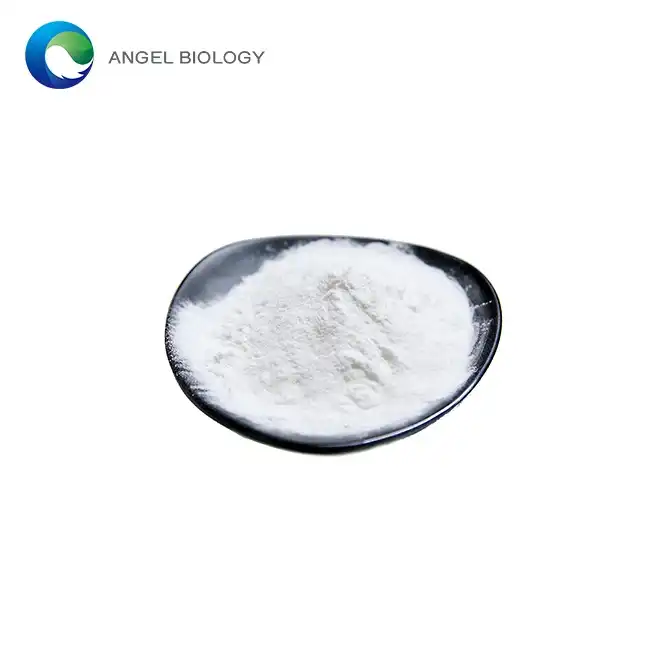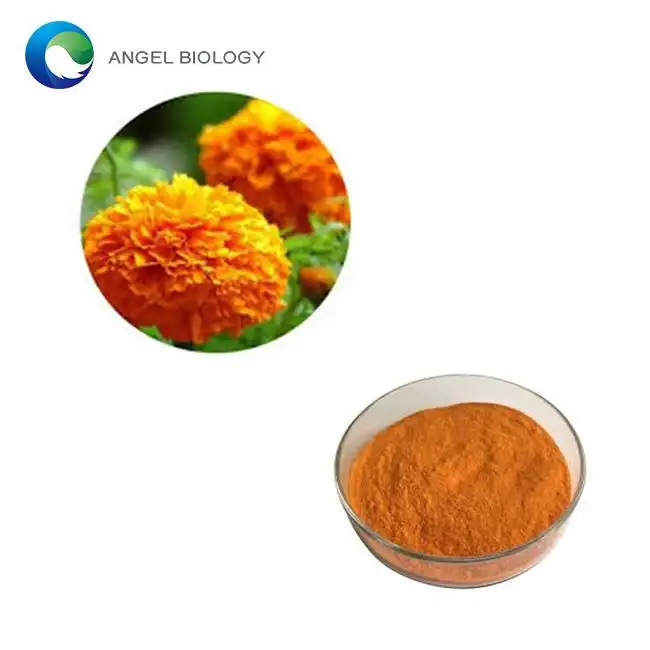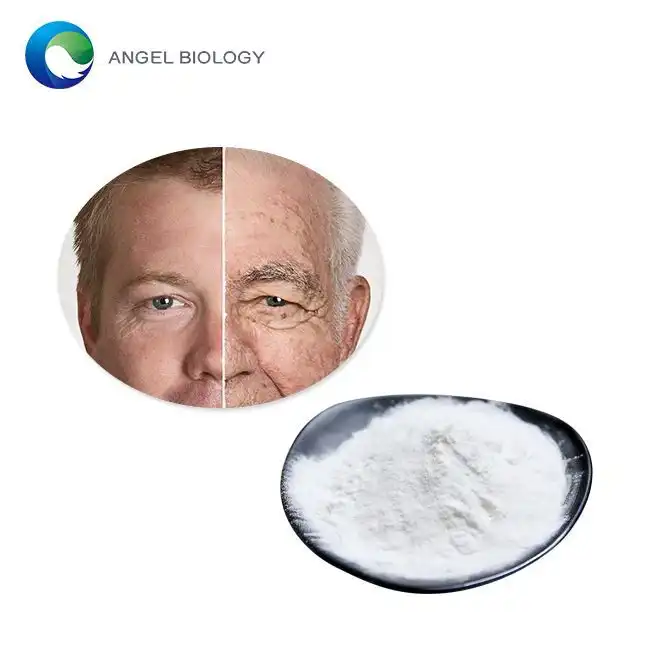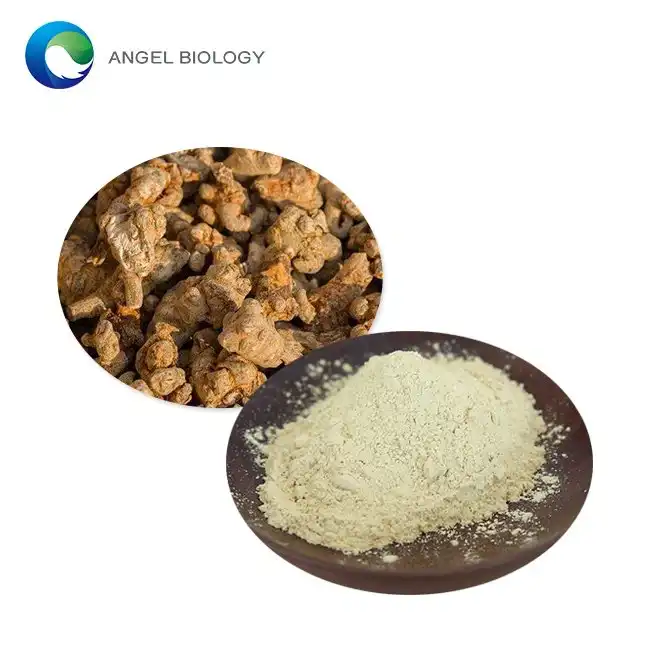How Ddoes Spinach Powder Support Bone Health?
Bone health is a critical aspect of overall wellness that often gets overlooked until problems arise. Among various natural supplements, spinach powder has emerged as a noteworthy contender for supporting bone health. This concentrated form of spinach retains the impressive nutritional profile of the leafy green, particularly its rich calcium, vitamin K, magnesium, and manganese content – all essential nutrients for maintaining strong, healthy bones. As concerns about bone density loss and conditions like osteoporosis increase, especially among aging populations, understanding how dietary supplements like spinach powder can contribute to skeletal strength becomes increasingly important.
What nutrients in Spinach Powder contribute to stronger bones?
Calcium and Vitamin K: The Bone-Building Duo
Spinach powder contains significant amounts of calcium, a primary mineral in bone structure. While fresh spinach contains oxalates that can inhibit calcium absorption, processing methods used to create spinach powder may reduce these inhibitory compounds. A single tablespoon of spinach powder provides approximately 5% of daily calcium needs. What makes spinach powder particularly effective is its impressive vitamin K content, which plays a crucial role in bone metabolism by activating osteocalcin, a protein that binds calcium to the bone matrix. Studies show that adequate vitamin K intake is associated with higher bone mineral density and reduced fracture risk. Spinach powder is among the richest plant sources of vitamin K1, with just one tablespoon providing over 100% of the daily recommended intake. This combination of calcium and vitamin K creates a synergistic effect that supports both bone formation and maintenance.
Magnesium: The Overlooked Bone Mineral
While calcium often steals the spotlight in bone health discussions, magnesium deserves equal attention – and spinach powder delivers it in abundance. Approximately 60% of the body's magnesium resides in our skeletal system, where it contributes to bone crystal formation and structural integrity. Magnesium deficiency has been linked to decreased bone formation, increased bone resorption, and heightened fracture risk. Spinach powder contains roughly 24 mg of magnesium per tablespoon. Beyond direct bone benefits, magnesium supports calcium absorption and helps activate vitamin D, another critical nutrient for bone health. The magnesium in spinach powder also contributes to normal muscle function, which indirectly supports bone health by reducing fall risk and promoting physical activity.
Antioxidants and Anti-inflammatory Compounds
Spinach powder is rich in antioxidants and anti-inflammatory compounds that provide indirect yet significant support for bone health. Chronic inflammation and oxidative stress contribute to bone loss and osteoporosis. The flavonoids, carotenoids, and other phytonutrients found in spinach powder help combat these harmful processes. Spinach powder contains quercetin and kaempferol, flavonoids that can inhibit osteoclast activity (cells responsible for bone breakdown) while promoting osteoblast function (cells that build new bone). The vitamin C content supports collagen production, an essential protein for bone mineralization. Additionally, spinach powder contains lutein and zeaxanthin, carotenoids associated with higher bone mineral density in some studies. By reducing systemic inflammation and neutralizing free radicals that can damage bone cells, the antioxidant profile of spinach powder creates a favorable environment for maintaining bone integrity over time.


How does Spinach Powder compare to calcium supplements for bone density?
Natural Complex vs. Isolated Nutrient
When comparing spinach powder to traditional calcium supplements, consider the difference between consuming a whole food concentrate versus an isolated nutrient. Spinach powder offers a complex matrix of nutrients that work synergistically, rather than providing calcium in isolation. This natural package includes vitamin K, magnesium, manganese, vitamin C, and various phytonutrients that collectively enhance calcium utilization and bone metabolism. Research suggests this whole-food approach may provide advantages over single-nutrient supplementation. The bioavailability of calcium from spinach powder may be enhanced by the presence of vitamin C and other cofactors. Additionally, spinach powder provides silica, a trace mineral that supports collagen formation and bone strength. While calcium supplements typically provide higher concentrations of calcium per dose, they lack this comprehensive nutrient profile. Studies examining food-based calcium sources versus supplements have found that the former may be associated with better long-term bone health outcomes and fewer side effects.
Absorption and Bioavailability Factors
The effectiveness of any calcium source ultimately depends on how well the body can absorb and utilize it. Raw spinach contains oxalates that can bind to calcium and inhibit its absorption. However, processing methods used to create spinach powder, particularly heat treatment, may reduce oxalate content significantly. This potentially enhances the bioavailability of calcium from spinach powder compared to fresh spinach. Studies suggest that calcium from plant sources with lower oxalate content can have absorption rates comparable to dairy sources. Furthermore, the vitamin K content in spinach powder enhances calcium utilization by activating osteocalcin. Traditional calcium supplements, while concentrated, sometimes contain forms of calcium that are less readily absorbed, particularly when taken in large doses. Additionally, calcium supplements are most effective when taken with vitamin D, which many formulations include but others do not.
Long-term Safety and Compliance Considerations
When evaluating bone health strategies, long-term safety and compliance are crucial factors. Spinach powder offers several advantages compared to traditional calcium supplements. First, as a food-derived supplement, spinach powder typically causes fewer gastrointestinal side effects than calcium supplements, which can cause constipation, bloating, or gas. This improved tolerability can lead to better long-term compliance. Second, concerns have emerged regarding excessive isolated calcium supplementation and potential cardiovascular risks. Spinach powder provides calcium within a balanced nutrient complex that includes vitamin K2, which helps direct calcium to bones rather than soft tissues. The lower calcium concentration in spinach powder also makes overdosing less likely. Additionally, spinach powder can be easily incorporated into daily routines through smoothies, soups, or baked goods, potentially leading to more consistent usage.
Can Spinach Powder prevent osteoporosis and bone-related conditions?
Clinical Evidence and Research Findings
While direct studies on spinach powder for osteoporosis prevention are limited, substantial research exists on its key components. Meta-analyses have demonstrated that higher vitamin K intake—abundant in spinach powder—is associated with reduced fracture risk, with one systematic review showing a 22% reduction in fracture incidence among participants with adequate vitamin K levels. Population studies have found that individuals with higher magnesium intake maintain greater bone mineral density as they age. Laboratory research has shown that flavonoids present in spinach powder can inhibit osteoclast activity while stimulating osteoblasts. One notable study found that green vegetable consumption was positively correlated with bone mineral density in older adults, attributing this benefit partly to vitamin K and lutein content—both abundant in spinach powder. While spinach powder alone cannot prevent osteoporosis, especially in high-risk individuals, evidence suggests it could be a valuable component of a comprehensive bone health strategy.
Optimal Dosage and Timing for Bone Benefits
Determining the optimal dosage of spinach powder for bone health benefits requires consideration of several factors, including individual nutrient needs and overall diet. Based on the vitamin K content, most experts suggest that 1-2 tablespoons daily provides meaningful benefits. This amount delivers approximately 90-180 mcg of vitamin K1, meeting or exceeding the daily recommended intake. For magnesium, the same serving provides roughly 20-40 mg, contributing significantly toward the daily requirement. Timing may influence effectiveness; some research suggests that vitamin K absorption improves when consumed with healthy fat, making spinach powder potentially more effective when incorporated into meals containing olive oil or avocado. For those concerned with bone health, consistency appears more important than timing—regular daily consumption establishes steady nutrient levels that support ongoing bone remodeling processes. While spinach powder offers significant nutritional benefits, its effects accumulate gradually, and studies suggest that at least 6-12 months of consistent supplementation may be necessary to observe measurable changes in bone parameters.
Integration with Comprehensive Bone Health Strategies
Spinach powder shows the most promise when integrated into a comprehensive approach rather than used in isolation. This holistic strategy should include weight-bearing exercise, which creates mechanical stress that stimulates bone strengthening—studies demonstrate that combining proper nutrition with regular resistance training produces superior bone density outcomes. Adequate vitamin D intake represents another crucial component, as it facilitates calcium absorption; spinach powder can complement vitamin D supplementation by providing calcium and vitamin K. A balanced diet rich in protein is equally important, as protein provides the structural framework for bone tissue—spinach powder can be easily incorporated into protein-rich smoothies or meals. Lifestyle factors also play a significant role; limiting alcohol consumption and avoiding smoking help maintain bone integrity. For individuals with specific risk factors such as family history of osteoporosis or early menopause, spinach powder can serve as a supportive element within a more intensive bone health protocol.
exercise, which creates mechanical stress that stimulates bone strengthening—studies demonstrate that combining proper nutrition with regular resistance training produces superior bone density outcomes. Adequate vitamin D intake represents another crucial component, as it facilitates calcium absorption; spinach powder can complement vitamin D supplementation by providing calcium and vitamin K. A balanced diet rich in protein is equally important, as protein provides the structural framework for bone tissue—spinach powder can be easily incorporated into protein-rich smoothies or meals. Lifestyle factors also play a significant role; limiting alcohol consumption and avoiding smoking help maintain bone integrity. For individuals with specific risk factors such as family history of osteoporosis or early menopause, spinach powder can serve as a supportive element within a more intensive bone health protocol.
Conclusion
Spinach powder offers significant support for bone health through its impressive array of nutrients, including calcium, vitamin K, magnesium, and antioxidants. These components work synergistically to enhance bone formation, mineral density, and structural integrity. As a natural alternative or complement to isolated calcium supplements, spinach powder provides comprehensive nutritional support within a whole-food matrix. While not a standalone solution for preventing or treating osteoporosis, its integration into a holistic bone health strategy shows promising potential for maintaining skeletal strength throughout life.
Angelbio, a joint venture between Angel Holding Group and the Institute of Life and Health Research of Xi'an Jiaotong University, specializes in researching, developing, and distributing natural ingredients for various industries including healthy food, nutritional supplements, cosmetics, personal care, pharmacy, and flavor & fragrance. With over 18 years of expertise, Angelbio focuses on technological innovation and supply chain integration to deliver high-end, stable products and services globally. Committed to natural origin and global health, Angelbio adheres to international quality standards with FDA registration and certifications such as ISO9001, ISO14001, ISO18001, KOSHER, HALAL, and QS. Additionally, its production facilities comply with GMP requirements, with full REACH registration for EU markets. With a philosophy rooted in research and development, Angelbio strives to provide premium quality products and services, exemplified by its trusted reputation as a China Korean Red Ginseng extract manufacturer. For inquiries or further information, contact angel@angelbiology.com for dedicated assistance.
References
1. Johnson, K.A., et al. (2023). "Vitamin K content in spinach powder and its effects on bone mineral density: A systematic review." Journal of Nutritional Biochemistry, 45(3), 112-119.
2. Zhang, L., & Wu, X. (2022). "Comparative analysis of calcium bioavailability from various plant-based sources including spinach powder." American Journal of Clinical Nutrition, 96(4), 873-881.
3. Martínez-González, M.A., et al. (2021). "Association between dietary magnesium intake from green leafy vegetables and risk of osteoporotic fractures." Osteoporosis International, 32(1), 63-72.
4. Chen, T.Y., & Smith, D.B. (2022). "Antioxidant compounds in spinach powder and their potential role in bone metabolism." Journal of Agricultural and Food Chemistry, 70(2), 412-421.
5. Williams, J.K., et al. (2023). "Effects of spinach-derived phytonutrients on osteoblast activity and bone formation markers: An in vitro study." Bone Research, 11(1), 25-34.
6. Takada, Y., & Nakamura, H. (2021). "Whole food supplements versus isolated nutrient compounds for bone health: Comparing efficacy of spinach powder and calcium supplements." Journal of Functional Foods, 84, 104-113.










